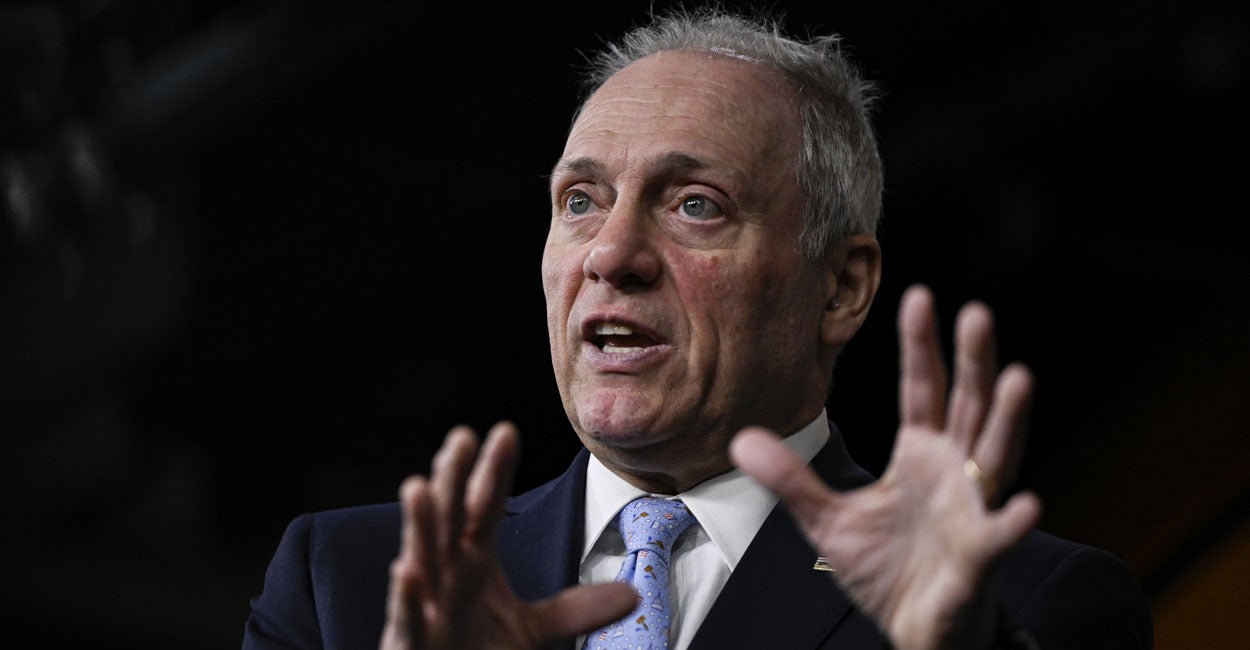


The Congressional Budget Office, Congress’ scorekeeper on the fiscal impact of legislation, released a report Wednesday predicting a deficit increase if Republicans’ “big, beautiful” budget reconciliation bill is enacted.
Republicans dispute that claim, contending that those predictions come from a misguided view of the economy.
The report projects that the House bill would heap an additional $2.4 trillion onto the 10-year national deficit and debt.
The report additionally forecasts 10.9 million more people would not have health insurance. That includes an “estimated 1.4 million noncitizens” who would be kicked off government-funded health programs by the bill.
Democrats were quick to pounce, with Rep. Frank Pallone, D-N.J., saying in a statement, “Republicans rushed to pass this bill under cover of night because they didn’t want the American people or even their own members to know about its catastrophic consequences.”
But Republicans suggest that the CBO’s method of using current law as a baseline is what creates the projected deficits. They criticize the CBO for counting the extension of President Donald Trump’s 2017 first-term tax cuts as a new change in law and not factoring in the economic growth Republicans expect.
“It confirms what we knew about the bill at House passage,” Office of Management and Budget Director Russell Vought wrote on X.
“The bill REDUCES deficits by $1.4 trillion over ten years when you adjust for CBO’s one big gimmick—not using a realistic current policy baseline. It includes $1.7 trillion in mandatory savings, the most in history. If you care about deficits and debt, this bill dramatically improves the fiscal picture.”
“Russ is right,” Speaker of the House Mike Johnson, R-La., agreed. “Our One Big, Beautiful Bill will REDUCE the deficit WHILE delivering on the mandate given to us by the American people.”
House Majority Leader Steve Scalise, R-La., sharply criticized the CBO as well at the Wednesday morning House Republican Conference meeting.
“You don’t have to go back that far to see how wrong the CBO has been when it comes time to make prognostications on economic growth,” said Scalise, who spoke of the CBO’s 2017 estimates of major revenue losses from the Tax Cuts and Jobs Act, adding:
CBO missed all of that [growth] in 2017, and they’re missing it again this time. That’s the only way they come to a conclusion that it would increase the deficit.
Some hawkish fiscal conservatives in the GOP, however, are pointing to the report as confirmation of their concerns about spending in the bill.
Also of note is the CBO’s release of projected revenues from Trump’s tariffs. The latest figures, which reflect tariff increases up to May 13, project that “in the absence of any effects on the U.S. economy, the changes in tariffs would reduce total deficits by $3.0 trillion” between 2025 and 2035.
The tariff report also predicts a shrinking of the overall economy, so total federal deficits would be reduced by $2.8 trillion when that downsizing is taken into account.
